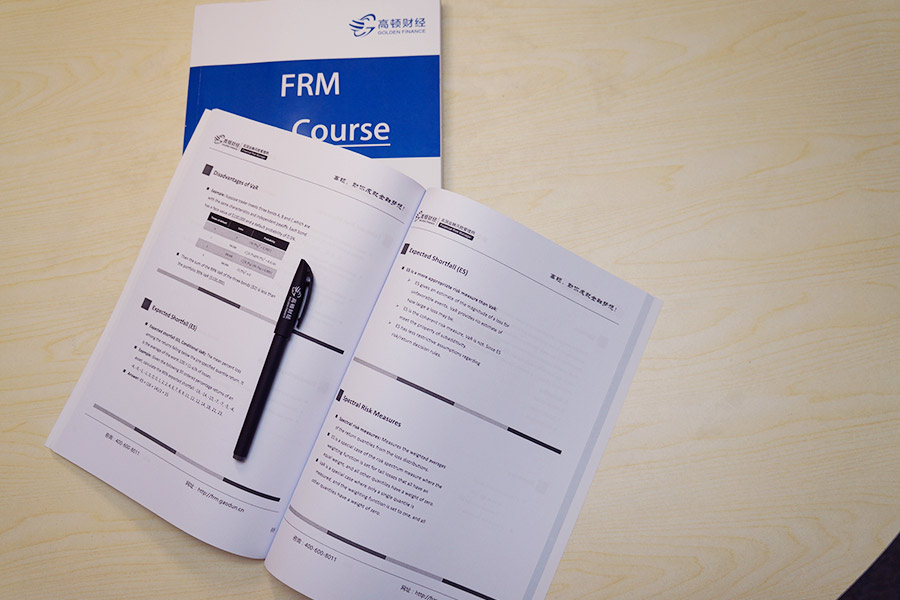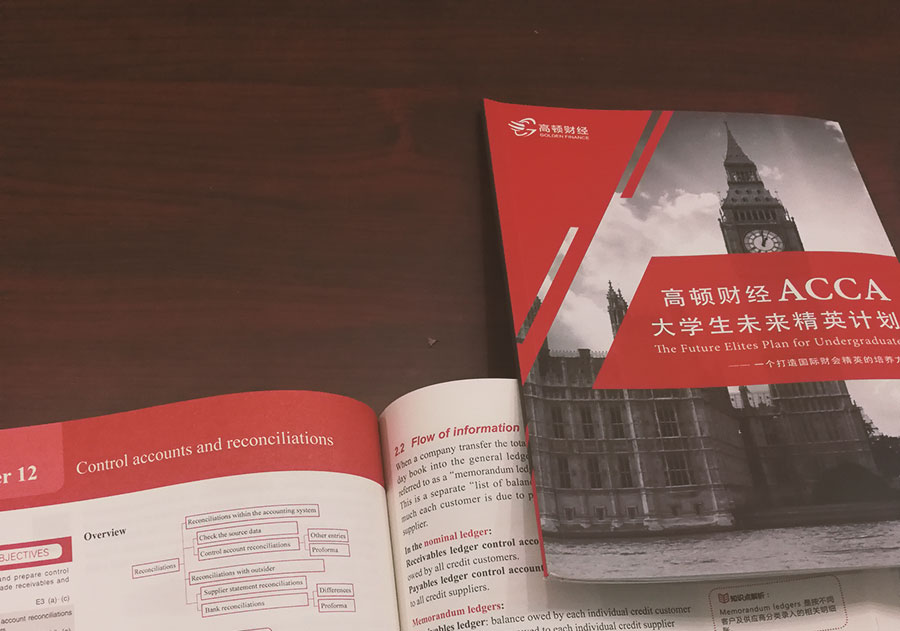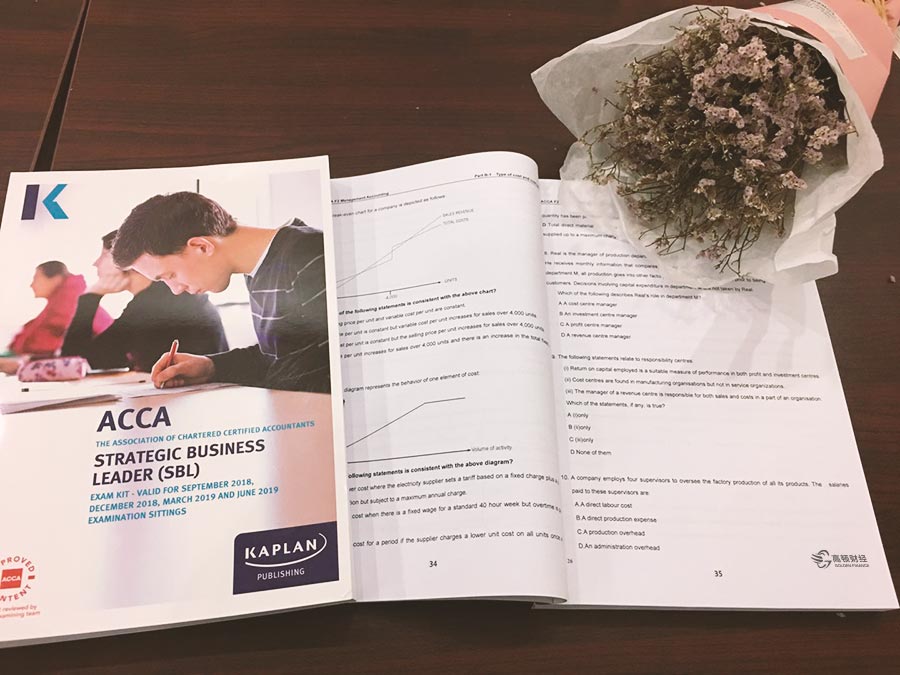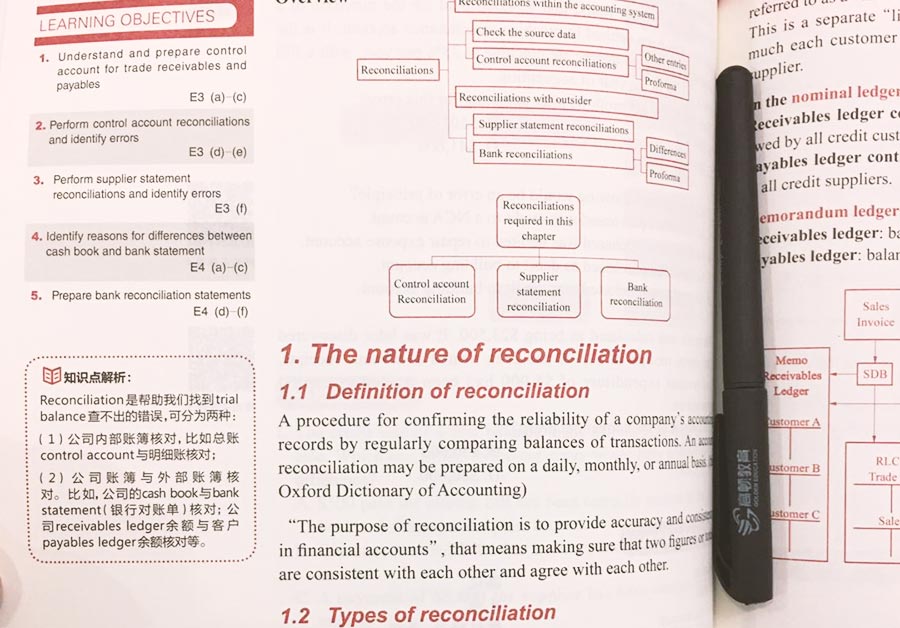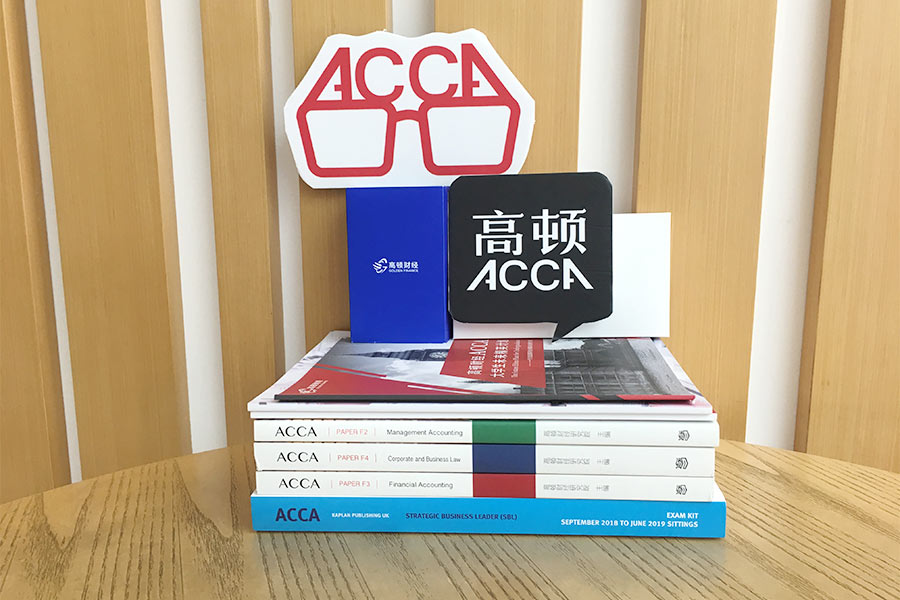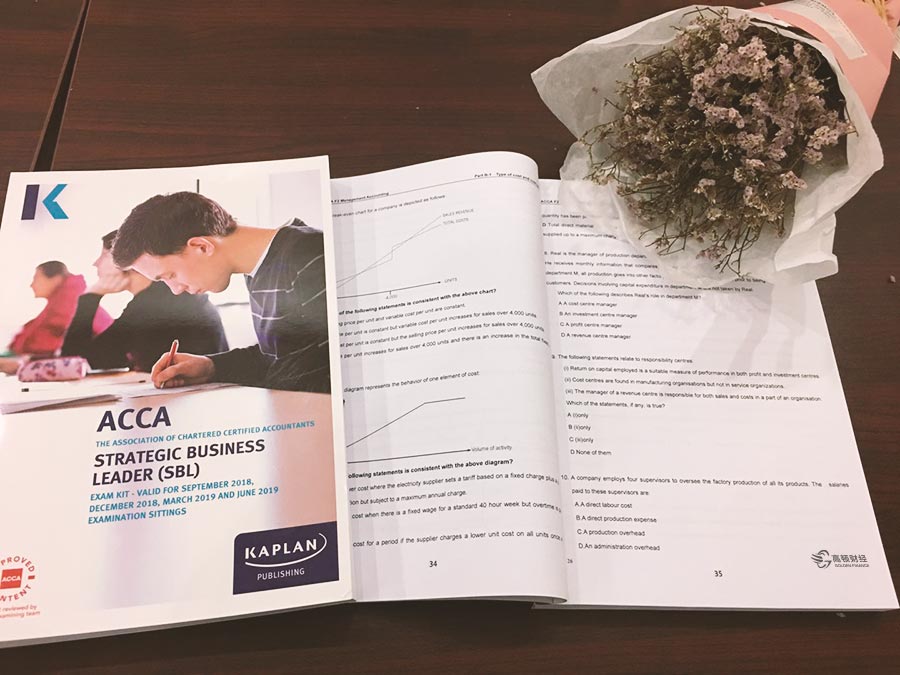2020年acca考试科目介绍
第一部分为基础阶段,主要分为知识课程和技能课程两个部分。知识课程主要涉及财务会计和管理会计方面的核心知识,也为接下去进行技能阶段的详细学习搭建了一个平台。知识课程的三个科目同时也是FIA方式注册学员所学习的FAB、FMA、FFA三个科目。
课程类别 | 课程序号 | 课程名称(中) | 课程名称(英) |
知识课程 | AB | 会计师与企业 | Accountant in Business |
MA | 管理会计 | Management Accounting |
FA | 财务会计 | Financial Accounting |
技能课程 | LW | 公司法与商法 | Corporate and Business Law |
PM | 业绩管理 | Performance Management |
TX | 税务 | Taxation |
FR | 财务报告 | Financial Reporting |
AA | 审计与认证业务 | Audit and Assurance |
FM | 财务管理 | Financial Management |
第二部分为专业阶段,主要分为核心课程和选修(四选二)课程。该阶段的课程相当于硕士阶段的课程难度,是对第一部分课程的引申和发展。该阶段课程引入了作为未来的高级会计师所必须的更高级的职业技能和知识技能。选修课程为从事高级管理咨询或顾问职业的学员,设计了解决更高级和更复杂的问题的技能。具体课程为:
课程类别 | 课程序号 | 课程名称(中) | 课程名称(英) |
核心课程 | SBL | 战略商业领袖 | Strategic Business Leader |
SBR | 战略商业报告 | Strategic Business Reporting |
选修课程
(4选2) | AFM | 高级财务管理 | Advanced Financial Management |
APM | 高级业绩管理 | Advanced Performance Management |
ATX | 高级税务 | Advanced Taxation |
AAA | 高级审计与认证业务 | Advanced Audit and Assurance |
考试建议
1.时间管理
考试全程240分钟,时间紧任务重,官方建议大家运用约40分钟的时间来阅读题目,并大致了解重要信息的位置,以方便答题时快速寻找。
2.高效阅读
整个考试的文本长度大概在12-18页之间,你的整个阅读过程应该为答题要求所驱动,学会提炼重点,提升对知识点考察的敏锐度,这些能力都需要在日常阅读中加以练习。
3.仔细审题
切中题目痛点,准确分析题目要求,如果没有说到点子上,即便表达得再好也很难获得分数。
4.全局规划
纵览试卷全局,有哪些分数有十足的把握,有哪些分数可能需要多下点功夫,在作答前要将这些了熟于胸,掌控好考试节奏,以智取分。
5.写作技巧
下笔前一定要把握好自己的角色定位,将自己完全代入角色,站在角色的立场解决特定的问题。
考试要求
确保你回答的是与题目所要求的相关性最高、最重要、最关键的点,以质取胜切勿以量取胜。
注意展现对问题的深度理解力,善于整合场景资源,并提升对所学知识的迁移能力,切勿仅仅照搬原文或者仅陈述原文所呈现的浅显易懂的点。
讲重点,避免答案冗长,陈述过的点不必重复。注意表达的书面性,谨慎对待动词的使用。
处理多项答案时,注意各个论点的优先顺序,注意答案呈现的逻辑性以及递进性,切勿“机关枪”一般毫无头绪的简单陈列。
在答题感觉上,始终保持一种“方案即将投入使用”的场景感,始终将利益相关者的需求置于首位。
需要记住,SBL考试并非考察语言的雄辩力或者词汇的丰富性或者语法的准确性,它不是一门语言考试,你的专业知识点仍是首要重要的。小编再送一个ACCA考试资料包,可以分享给小伙伴,自提,戳:ACCA资料【新手指南】+内部讲义+解析音频
ACCA科目内容介绍(英文版)
(F1/FAB)Foundations of Accounting in Business
To introduce knowledge and understanding of the business and its environment and the influence this has on how organisations are structured and on the role of the accounting and other key business functions in contributing to the efficient,effective and ethical management and development of an organisation and its people and systems.
(F2/FMA)Foundations of Management Accounting
To develop knowledge and understanding of providing basic management information in an organisation to support management in planning and decision-making.
(F3/FFA)Foundations of Financial Accounting
To develop knowledge and understanding of the underlying principles and concepts relating to financial accounting and technical proficiency in the use of double-entry accounting techniques including the preparation of basic financial statements.
(F4)Corporate and Business Law
To develop knowledge and skills in the understanding of the general legal framework,and of specific legal areas relating to business,recognizing the need to seek further specialist leg advice where necessary.
(F5)Performance Management
To develop knowledge and skills in the application of management accounting techniques to quantitative and qualitative information for planning,decision-making,performance *uation,and control
(F6)Taxation(UK)
To develop knowledge and skills relating to the tax system as applicable to individuals,single companies,and groups of companies.
(F7)Financial Reporting(INT)
To develop knowledge and skills in understanding and applying accounting standards and the theoretical framework in the preparation of financial statements of entities,including groups and how to analyse and interpret those financial statements.
(F8)Audit and Assurance(INT)
To develop knowledge and understanding of the process of carrying out the assurance engagement and its application in the context of the professional regulatory framework.
(F9)Financial Management
To develop the knowledge and skills expected of a finance manager,in relation to investment,financing,and dividend policy decisions.
(SBL)Strategic Business Leader
(SBR)Strategic Business Reporting
(P4)Advanced Financial Management
To apply relevant knowledge,skills and exercise professional judgement as expected of a senior financial executive or advisor,in taking or recommending decisions relating to the financial management of an organisation.
(P5)Advanced Performance Management
To apply relevant knowledge,skills and exercise professional judgement in selecting and applying strategic management accounting techniques in different business contexts and to contribute to the *uation of the performance of an organisation and its strategic development.
(P7)Advanced Audit and Assurance(INT)
To analyse,*uate and conclude on the assurance engagement and other audit and assurance issues in the context of best practice and current developments.


 QQ登录
QQ登录 微博登录
微博登录 微信登录
微信登录

